A series of coproduced creative workshops to improve access to dental services for adult survivors of child sex abuse
Dr Nilu Ahmed, Ms Viv Gordon, Dr Patricia Neville, Dr Angela Hague, Dr Tamara Khayatt, Ms Becky White from Improving Access to Oral Health Services for Adult Survivors of Child Sex Abuse (CSA).
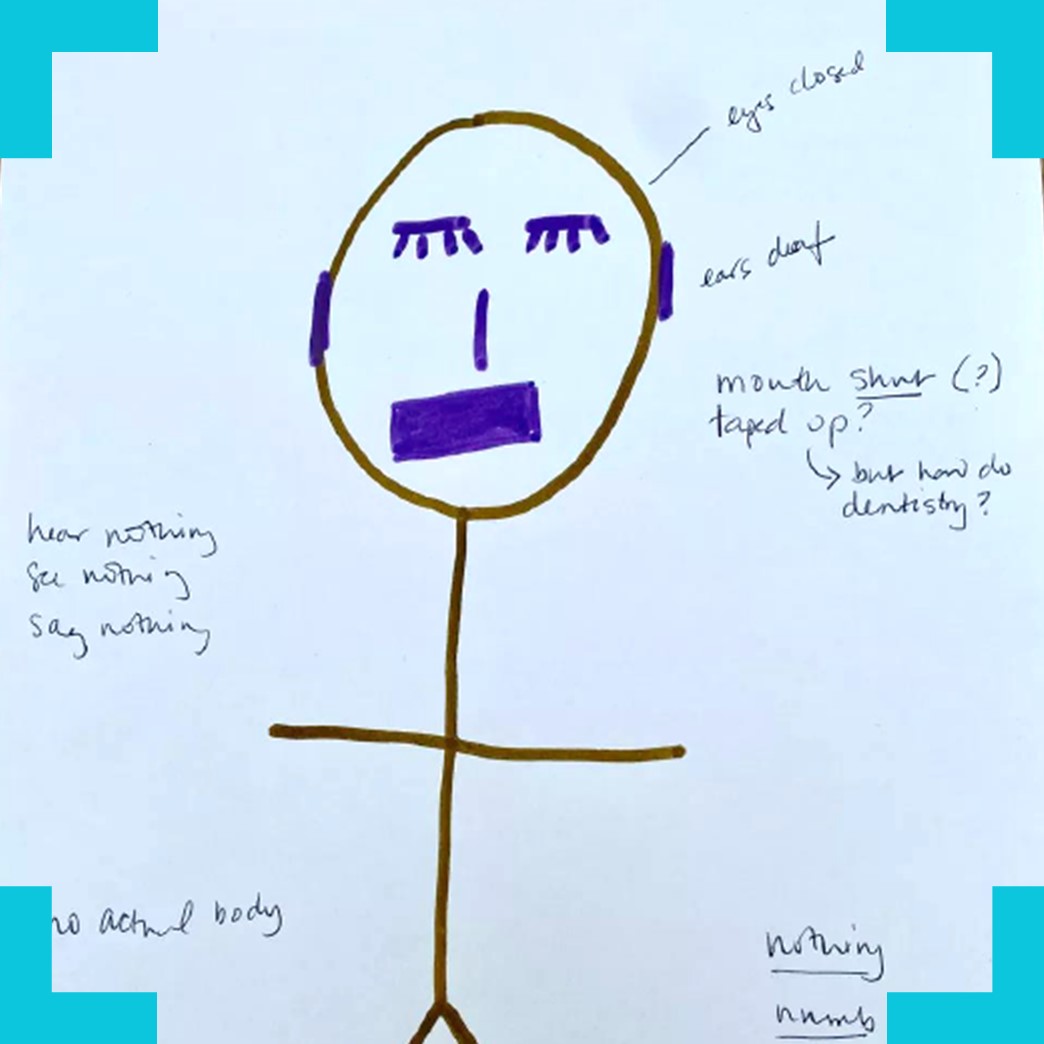
It is known that survivors of child sexual abuse have poorer oral health than the general population. This is from a combination of difficulties maintaining personal oral health routines and attending dental practices. This study included survivors, psychologist, sociologist, dentist, scientist among its team, and also had the input of service providers and dental professionals in the Critical Friends Group.
We undertook a series of coproduced creative workshops to explore how dental services can be improved for adult survivors of child sexual abuse. Additionally, separate Padlets were set up for the research team and the workshop participants with the study leads Nilu and Viv having access to both. These Padlets encouraged everyone to share ideas and reflections throughout the process, and to upload any outcomes from the workshops or anything else they wanted to share.
This research followed on from an Ideas Exchange project funded by Brigstow Institute. In that study we held two focus groups – one with dentists and one with survivors to explore ideas. Findings were shared via a webinar on 22 November 2021 to which over 100 people signed up from across the UK.
Building on this work, we applied for seed corn funding in 2022 from Brigstow to undertake five coproduced creative workshops with survivors. We were awarded additional funding from the Bristol and Weston Hospital charity allowing us to increase the number of workshops to nine – five creative workshops, and four focusing on producing outputs. A trained counsellor was present in all the creative workshops to offer support during, as well as being available after, the workshops for participants.
We purposefully sampled four Survivor Activists who were used to talking about the impact of CSA through Viv’s connections, three females and one male. Unfortunately, our male participant withdrew after contracting Covid. We were also joined by Becky White, a postgraduate student who supported the study delivery and data analysis.
The workshops were planned to be a mix of academic and creative content. Framing key survivor experiences in an academic landscape and sharing the terminology and approaches to familiarise survivors with an academic presentation of lived experiences.
The first workshop was on Autoethnography – being able to tell your own story. Patricia Neville, our team sociologist, presented on this and Viv encouraged everyone to write their own stories of their mouths, ‘how the mouth experienced the dentist’ and what a perfect appointment might look like.
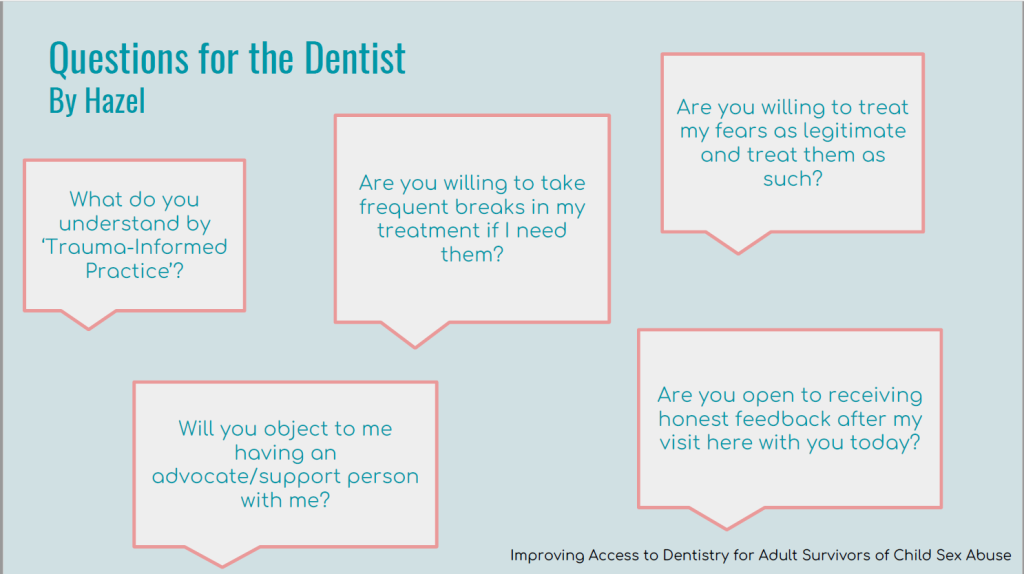
Our second workshop was on Stigma and Patricia Neville spoke about stigma through a sociological lens. The workshop was run by the fantastic artist Sejal Chad, who helped us all explore the parts of us that are allowed into the dental space, and those that are not welcome and must be left behind.
The third workshop explored Power. Becky White delivered the academic presentation, whilst the creative element was run by activist Dolly Sen, who encouraged everyone to write TripAdvisor reviews for their dental appointments, to subvert power dynamics in dental spaces.
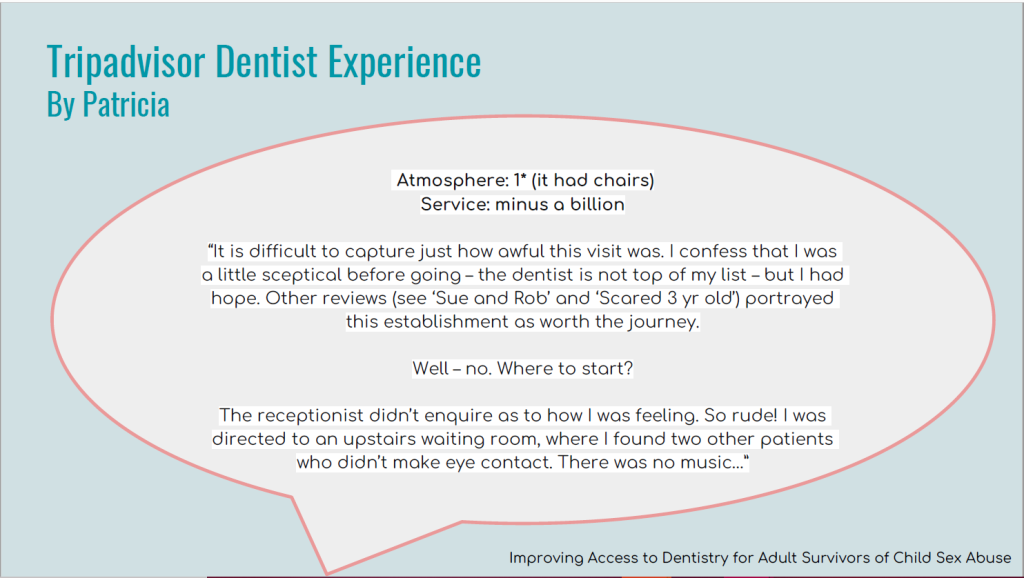
Workshop four explored Models of Illness, Patricia Neville presented on the medical and social models of health and illness. Anita McCullen ran a script writing workshop where the characters encountered in dental settings came vividly to life – receptionists really featured strongly in people’s scripts.
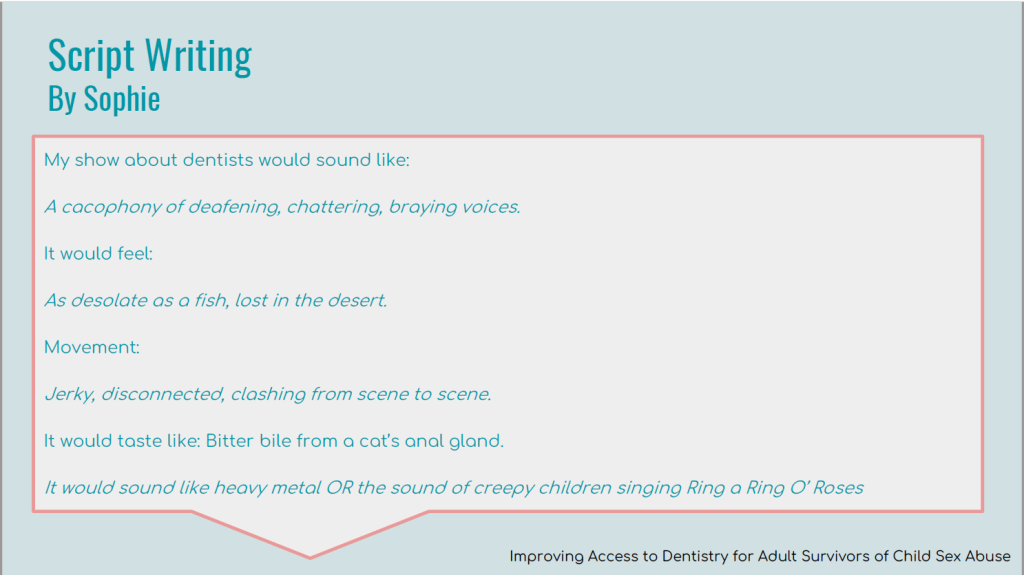
Workshop five was the last of the creative process workshops and brought the focus back to Coproduction with the presentation delivered by Nilu Ahmed. Viv led the session encouraging the team to think about what our output would be. We brainstormed from grand notions of what we wanted to create – from operas to training programmes – before considering what was practical and achievable in our time and budget. The group decided on a poster that could be sent to all dental practices.
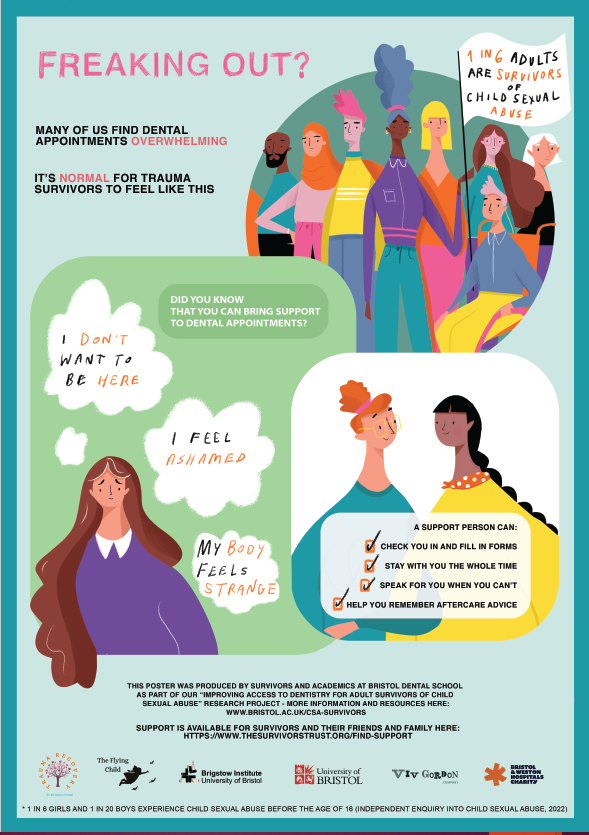
In workshop six we invited an artist to meet with us to talk through the ideas the group were having. The group shared the journey so far and the artist was given access to the Padlet where ideas and outputs from our workshops had been uploaded. She produced draft mock ups of posters which we reviewed in workshop seven and fed back. As she finalised the poster, in workshop eight we reviewed the information sheet for the study. All participants told us that if they had only received the study information sheet, they would probably not have taken part. It was their relationship with Viv that had been the deciding factor on being involved. So, we co-created a new, more inclusive information sheet based on the core information that survivors would want included in a study information sheet. The text was agreed on and sent to the artist. In workshop nine, we reviewed the final poster.
Our artist then went on maternity leave, and the final tweaks were undertaken by a new artist. We launched our poster and study information sheet on 22 November 2022 – exactly one year to the day after our webinar sharing findings from our Ideas Exchange project. We are excited to see what the coming year(s) bring for this work.
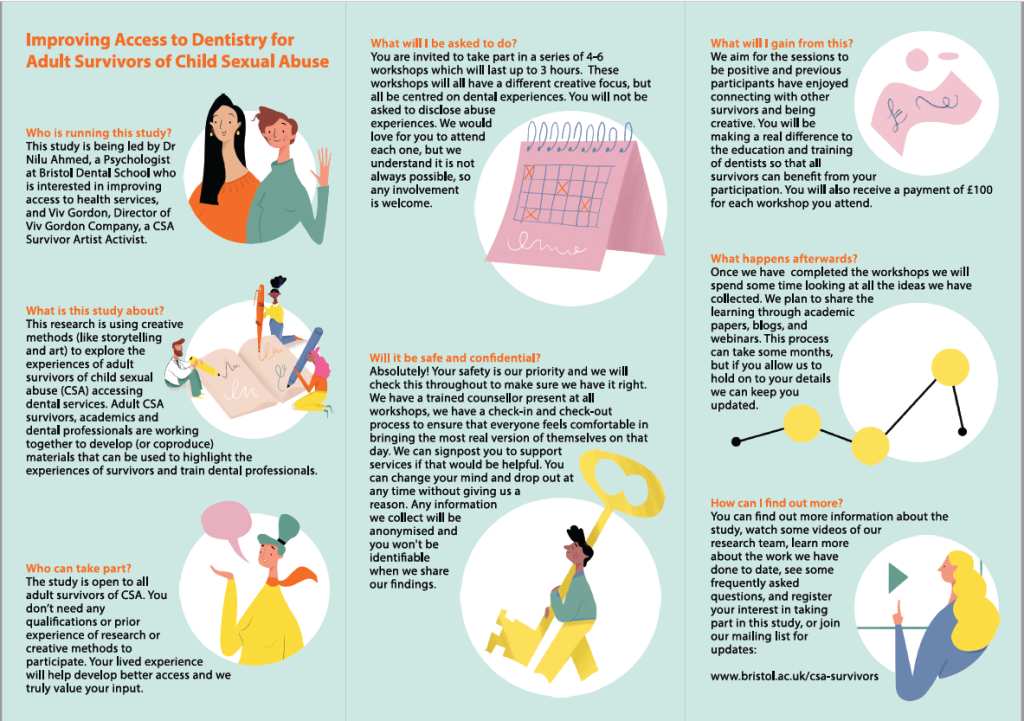
Find out more about 2022 Experimental Partnership Improving Access to Oral Health Services for Adult Survivors of Child Sex Abuse (CSA).

